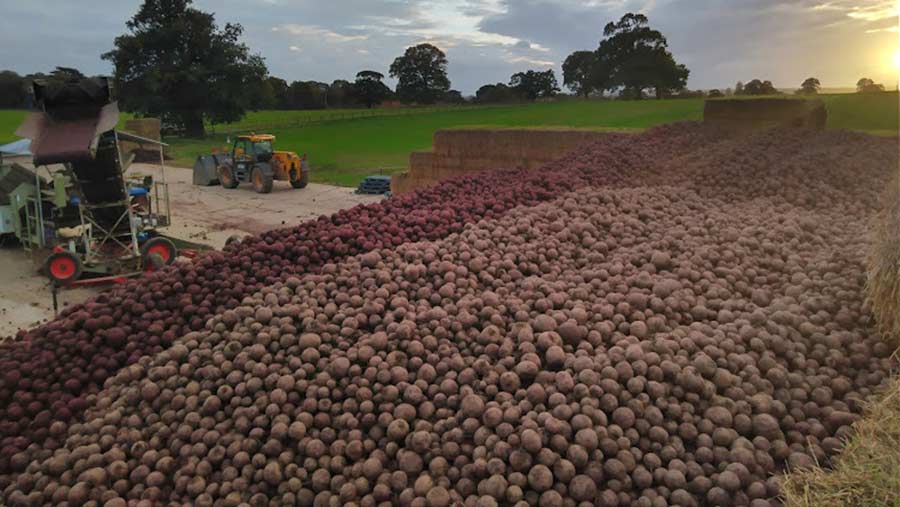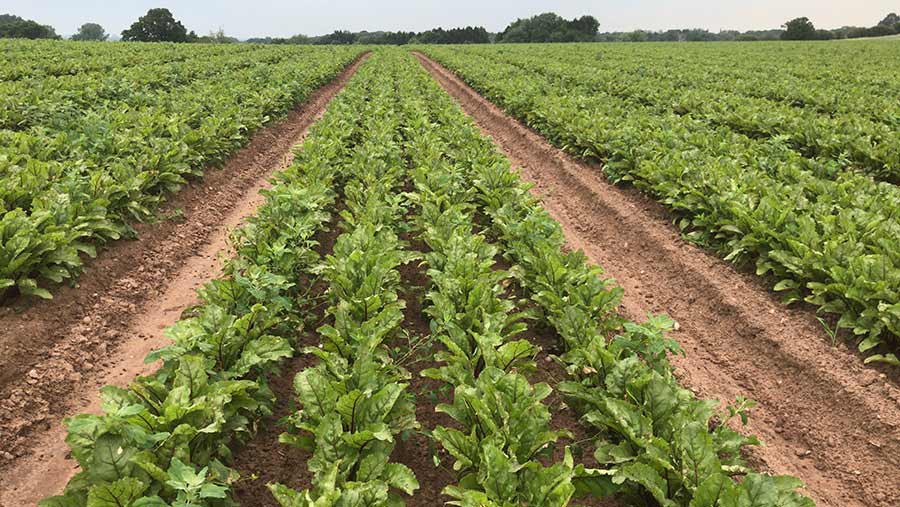Farmer left with 500t of beetroot blames Brexit and red tape
 © Woodhall Growers
© Woodhall Growers A farmer has been left with an unsold crop of organic beetroot worth £90,000, with his regular buyer blaming Brexit and new export controls.
Will Woodhall grows 35ha of beetroot at Penkridge, Staffordshire, supplying UK and European buyers.
But 500t destined for Europe is now sitting in his farmyard as the marketing company that handles his sales told him European buyers no longer wanted non-EU produce.
See also: Farmers under threat as ministers sign UK-NZ free-trade deal
“I believe it is happening to quite a few crops, and to some degree I can understand why,” said Mr Woodhall, who grows 420ha of organic and conventional vegetables and cereals.
“If the packer is processing European-grown vegetables and has to stop the line to label my beetroot as produce of the UK, that does create a lot of issues.”
But losing the market still came as a surprise. “I got a phone call from the marketing company and was expecting another order, but was told they couldn’t find a home for it.”
UK market full
Mr Woodhall had hoped the excess could be sold to a UK buyer, but that market was already fully supplied, he said.
He has offered the beetroot free to food banks, and one did collect 200kg this week, but this took two hours of his day during one of his busiest periods.
“I have told them to definitely come back and help themselves, but I can’t be on hand to manage collections.”

Mr Woodhall says the beetroot cost £5,000/ha to grow © Woodlhall Growers
The beetroot was harvested in optimum conditions at the end of September, and that is one of the comforts Mr Woodhall is taking from the situation.
“It was a kind harvest and there was no damage to machinery, which kept our costs down, and we were able to get some cover crops in afterwards,” he said.
But the beetroot cost him £5,000/ha to grow.
Production scaled back
Mr Woodhall scaled back production after Brexit. “We did grow less two years ago because we thought that would be the year we would get a good kicking. I didn’t want to take the risk, but the market was good so that gave me the confidence to go back to my normal growing programme,” he said.
However, that was before new border controls were introduced.
Mr Woodhall said he would now try to salvage the best from the situation by composting the beetroot. “I will have to spend a bit of money on it but it will be like rocket fuel when we spread it onto our cereals.”
